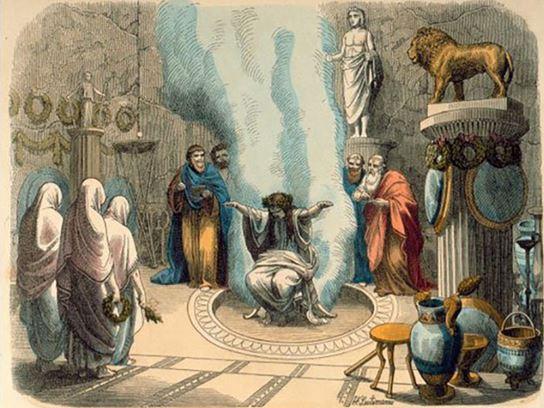Sibylline

The term "sibyllinen" (German for "sibylline" in English) refers to something prophetic, mysterious, oracular, or enigmatic—often with an air of sacred or divine origin. It originates from the ancient figure of the Sibyls, who were women believed to be prophetesses or seers inspired by divine forces, especially in the Greco-Roman world.
Let’s unpack it in several layers: historical, religious, and esoteric.
🏛️ 1. Historical Origin: The Sibyls
The Sibyls were legendary women who delivered prophecies in a frenzied or ecstatic state, believed to be inspired by the gods (especially Apollo). They existed throughout the ancient Mediterranean world—Delphi, Cumae, Erythrae, Persia, Phrygia, Tiburtine, etc.
-
The most famous is the Cumaean Sibyl, who appeared in Virgil’s Aeneid, guiding Aeneas to the underworld.
-
The Sibylline Books (Latin: Libri Sibyllini) were a collection of prophetic writings consulted by Roman authorities in times of crisis.
✝️ 2. Sibylline in Christianity
Interestingly, some Sibylline prophecies were later absorbed into Christian thought, particularly in Late Antiquity and the Middle Ages.
-
Christian interpreters viewed the Sibyls as pagan prophets who unknowingly predicted the coming of Christ.
-
This is why you’ll see Sibyls painted next to prophets in Christian art—like in Michelangelo’s Sistine Chapel ceiling, where five Sibyls are included alongside Old Testament prophets.
They came to represent hidden wisdom—outside the Judeo-Christian canon, but mysteriously aligned with it.
🜏 3. Esoteric & Mystical Use
In esoteric, gnostic, and alchemical traditions, the term "sibylline" took on deeper symbolic meaning:
-
Sibylline knowledge is cryptic wisdom revealed in riddles, dreams, or sacred ecstasy.
-
Associated with divine madness, hidden gnosis, and the feminine archetype of the oracle.
-
In hermetic or rosicrucian thought, sibylline texts may hold encoded truths—requiring inner transformation or enlightenment to understand.
It aligns with the idea of the divine feminine as a bearer of mystery and revelation, much like Sophia, Shakti, or the Shekhinah.
🌀 4. Modern Connotations
Today, when someone says something is "sibylline" (or sibyllinisch in German), they usually mean:
-
Mysterious or enigmatic
-
Spoken in a riddle
-
Containing hidden or layered meaning
-
Possibly prophetic or visionary in tone
🧩 In Summary:
Sibyllinen points to:
-
🔮 Prophetic and oracular wisdom (often cryptic)
-
📜 Ancient traditions where female seers spoke divine truths
-
✝️ Syncretic use in Christianity as pagan voices predicting Christ
-
🜍 Esoteric resonance as veiled, encoded truth—often feminine in archetype










